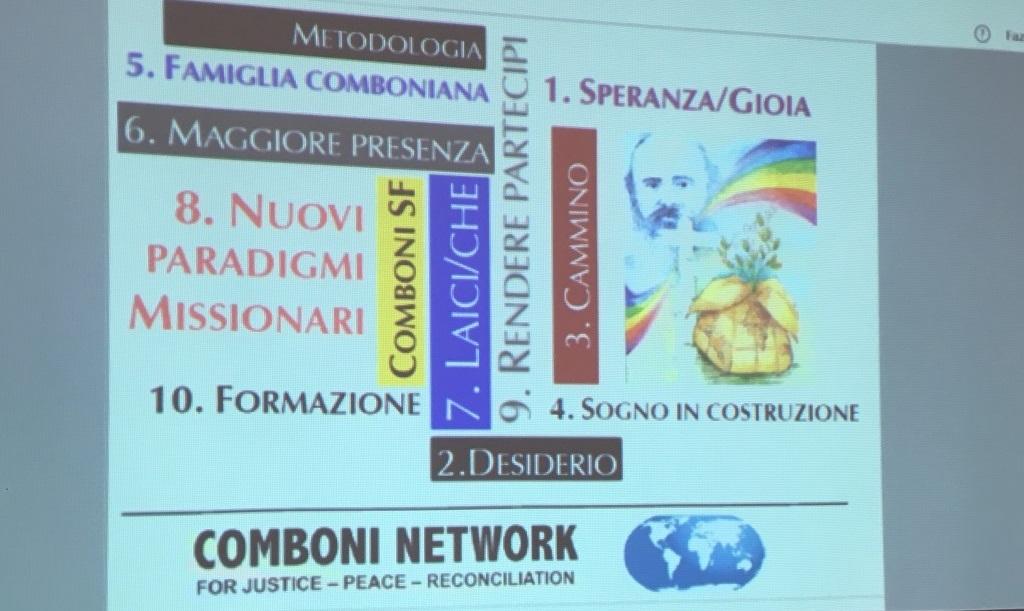Daniele Comboni
Missionari Comboniani
Area istituzionale
Altri link
Newsletter
Thursday, April 11, 2024
Food security remains a critical challenge in many regions across the globe, particularly in East Africa where issues of land injustice and displacement exacerbate the situation. In the pursuit of sustainable solutions, the African Union (AU) and European Union (EU) Partnership must prioritize holistic approaches that address the root causes of food insecurity while promoting social justice and environmental sustainability. [In the picture: Elvis at the AU-EU. AEFJN]
The AU-EU Partnership serves as a platform for collaboration aimed at fostering sustainable, just, and resilient food systems. Central to this partnership is the recognition of mutual prosperity, ensuring that neither continent is exploited for the benefit of the other. However, achieving food security requires transcending immediate concerns and addressing systemic challenges ingrained in the global food order.
One of the key initiatives within this partnership is the expansion of efforts to combat food insecurity in East Africa, with Uganda serving as the point of entry. However, this expansion faces significant hurdles, particularly in regions scarred by conflict and land disputes. In Northern Uganda, the legacy of the Lord’s Resistance Army (LRA) war has left a lasting impact on the social fabric, contributing to persistent land disputes that hinder agricultural productivity and exacerbate food insecurity.
Similarly, Adjumani District grapples with demographic challenges exacerbated by the influx of refugees, leading to conflicts over land resources and disrupting agricultural activities. These examples underscore the urgent need for comprehensive and sustainable solutions to address the complex interplay between land injustice and food insecurity in East Africa.
Central to these efforts is the promotion of agroecology and land rights, recognizing that land is not merely a source of food and resources but also a vital aspect of cultural identity and tradition. Indigenous wisdom offers valuable insights into sustainable land management practices, emphasizing stewardship and respect for the environment. By drawing upon traditional knowledge and indigenous practices, communities can develop resilient food systems that ensure sustenance for generations to come.
Moreover, the concept of “Our Land is Our Life” encapsulates the profound connection between land, culture, and identity. It underscores the importance of preserving land resources for future generations while acknowledging the spiritual and cultural significance embedded within the landscape. By embracing indigenous wisdom and traditional practices, East Africa can chart a path towards sustainable development that prioritizes both environmental stewardship and social justice.
In conclusion, addressing food insecurity in East Africa requires a multi-faceted approach that tackles the underlying issues of land injustice and displacement. The AU-EU Partnership provides a framework for collaboration, but meaningful change will require concerted efforts at the local, national, and international levels. By prioritizing sustainability, social justice, and respect for indigenous knowledge, East Africa can build resilient food systems that ensure the well-being of its people and the planet.
Elvis Ng’andwe, M.Afr
Executive Secretary-AEFJN




